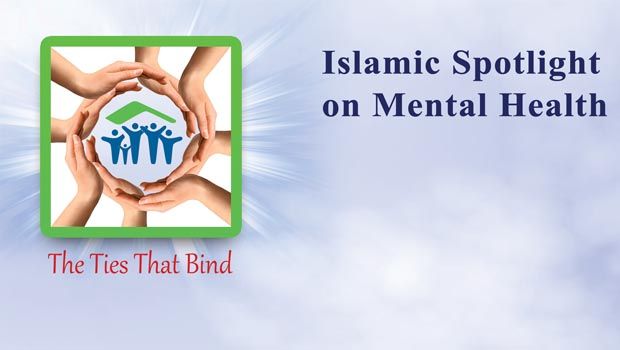Allah (SWT) says in the Quran, “And We have already created man and know what his soul whispers to him, and We are closer to him than his jugular vein” (50:16). In this ayah, the Lord of the worlds describes His awareness of each and every human being, his or her innermost thoughts, desires, and intentions. The statement, “We know what his soul whispers to him,”provides us with comfort because it gives us reassurance that no matter what we suffer – our sadness or grief or worry – Allah (SWT) is aware of it as well. We are not alone. It also can instill fear in us because we are reminded that the negative, irresponsible, or unvirtuous thoughts that we have are not completely private because Allah (SWT) knows of them as well. Whatever anger, resentment, or jealousy we may feel, He is aware of it all. It gives us a reminder to hold ourselves accountable because the One who will hold us accountable in the next life is aware of everything that goes on in our minds.
The closeness between Allah (SWT) and His servant is further described by reference to the vein that our lives depend on, the jugular vein that is in the neck. The jugular vein carries large volumes of blood from the brain, face, and neck, back to the heart. Damage to the jugular and subsequent blood loss can quickly lead to shock and death. Yet, He (SWT) is closer to us than that physiological lifeline. There is nothing closer than that. Allah (SWT) is there even in our darkest of times. In our moments of sadness, feeling betrayed or abandoned, the Lord is with us, providing comfort and guidance through His deen, His Book, His messenger, and through our direct access to Him at every moment through salat and dua.He (SWT) is with us always. He has never left us and never will.
Allah’s Closeness Converges with Examination of Self
In tandem with Allah’s closeness to each one of us and His knowledge of the innermost self, is the Islamic focus on being self-examining. To be honest with ourselves, to increase awareness of our thoughts and behaviors so as to take fullest responsibility for ourselves and the way we live our lives – this is all part of maturing from the base level of unrestrained desire and impulse to the self-reproaching soul, aiming ultimately for tranquility and ease in daily living. This unfolds as thoughts, feelings, and actions come into harmony, aligned with Divine will. Sometimes we need help in candidly seeing ourselves and our habits of living, or in resolving issues that obstruct our growth, or solving problems that hamper the healthiness of our relationships. Mental health is just as real and important as physical health.
Yet, mental health is, for the most part, not discussed in Muslim communities, but rather silenced. A common stigma that works against dealing maturely and pragmatically with mental health issues is reflected in people’s negative judgements of those suffering with depression, anxiety, lack of motivation, and other personal challenges. They are often viewed as weak, incompetent, or crazy. Within the Muslim community in particular, this intertwines with cultural and religious views. People see those afflicted with psychological problems as lacking faith, patience, or trust in God. They are seen as religiously weak. Culturally, Muslims are taught to avoid airing their dirty laundry, to keep their personal and family problems secret. Add to this the well-intentioned but misguided advice to turn to God and all your problems will vanish. What is missing from this is that human action might also be appropriate and necessary. The Prophet (pbuh) has told us to tie the camel and then trust in God for her protection. For individuals who are suffering from feeling stuck, dejected, unable to make decisions, or unable to find solutions to their personal or family problems, they end up feeling hopeless and unable to find the support that they need when talk of mental health issues is taboo. This is something that needs to change.
It is difficult for many Muslims to accept that mental health issues exist. Instead of believing and accepting that mental illness does exist, many Muslims suspect black magic as a cause. They blame their issues on black magic and get caught up in finding out who is doing it and how to get rid of it. Even though there may be a chance that this is the case, it often serves as an unnecessary distraction from the real issue at hand. This can be a dangerous distraction since the real issue can fester while it is not being attended to.
Awareness is First Step to Getting Help
It is essential that we bring about more awareness within the Muslim community. In masjids, Islamic schools, community centers, and conventions, we need to offer more workshops and discussions on issues surrounding mental health. We need to normalize it and be open to talking about it so that we can eliminate the stigma and allow for more channels of communication, support, and change.
For those of you who are dealing with mental health issues, you are not alone. There are so many out there who have or had similar challenges and understand what you are going through.And there are counselors and therapists who are available to help. Reach out for help, have hope that things will get better, and believe that you will be able to overcome your struggles. Medication is appropriate in severe or chronic cases.And in all circumstances, counseling/therapy is a valuable and empowering process that facilitates your determination and effort to transform your life for the better. Give it a chance, and ultimately, give yourself a chance for a better future.




